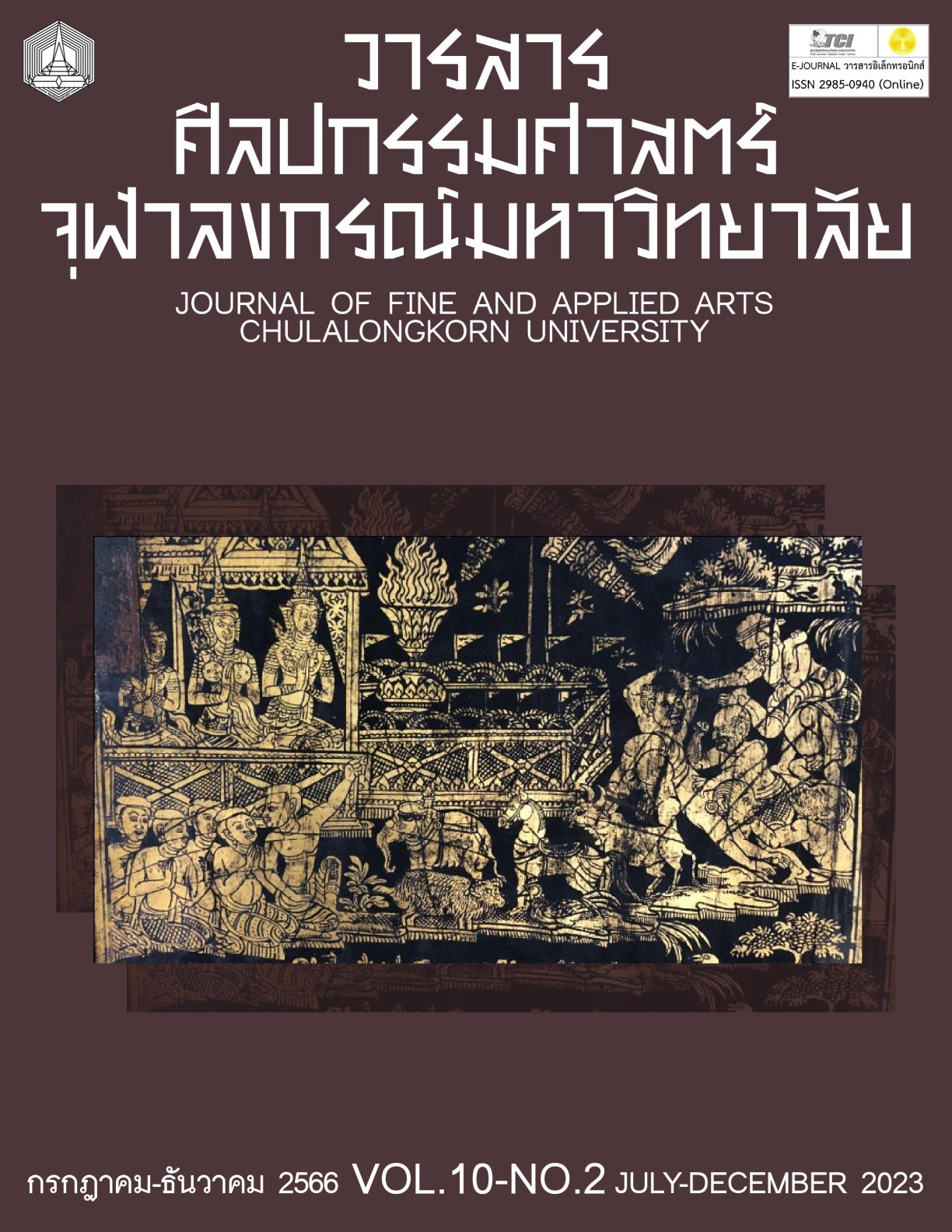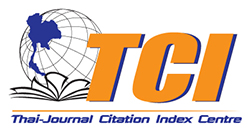A STUDY OF PUPPET THEATER TO DEVELOPMENT INHIBITORY CONTROL, EXECUTIVE FUNCTIONS SKILL OF KINDERGARTEN, WATKLANG SCHOOL
Keywords:
Puppet Theater, Executive Functions Skill, Inhibitory ControlAbstract
The study of puppet theater to develop the brain skills for restraint among early childhood children at Watklang School (Thamwithanratwittaya) aimes to study and develop puppet theater activities to develop the brain skills of restraint among early childhood children and to compare the brain skills on restraint of early childhood children at Watklang School (Thamwithanratwittaya) before and after organizing a puppet theater activity. The sample group used in this research was students studying in Grade Three of kindergarten, aged 5-6 years, studing at Watklang School (Thammawithanratwittaya), with a total of 12 people, with seven males and five females. selecting in a specific way The research tools were 12 puppet theater activity plans and 10 indicators of restraint brain skills.
The results showed that Designing a Puppet Theater Activity Plan for developing brain skills on restraint among Early Childhood Children The researcher applied the concept of EF Brain Skill Development Theory by giving 13 opportunities to develop 12 puppet theater activities, which consisted of 3 steps as follows. Give students the desire to learn and concentrate before starting activities. Activities It is the learning and practice stage of puppet theater that students must cooperate and practice with everyone. To promote the students' restraint brain skills, such as using puppet shows, playing games, puppet making situations, or inventing, etc. Conclusion and discussion This is where the teacher invites the students to talk about the activities that have been carried out. Including having the students express their feelings and the teachers commend the students for the puppet theater activities. and I used puppet theater activities to develop brain skills on restraint of early childhood children. It was found that the sample had a higher mean score after the puppet theater activity than before the puppet theater activity. Statistically significant at the .05 level.
References
Chitjueajun, Phadung. “Current situation of Thai children and youth Anxiety in the future is even more worrisome.” https://www.matichon.co.th/columnists/news_1313057.
ผดุง จิตเจือจุน. “สถานการณ์ปัจจุบันของเด็กและเยาวชนไทย น่าวิตกในอนาคตยิ่งน่าเป็นห่วง.” https://www.matichon.co.th/columnists/news_1313057.
Chonchaiya, Weerasak. “Developing EF from early childhood...the foundation of national development in the Thailand 4.0.” http://www.thaipediatrics.org/pages/Doctor/Detail/43/188.
วีระศักดิ์ ชลไชยะ. “พัฒนา EF ตั้งแต่ปฐมวัย...รากฐานของการพัฒนาประเทศในยุค Thailand 4.0.” http://www.thaipediatrics.org/pages/Doctor/Detail/43/188.
Hanmethee, Subhawadee. A Guide for development brain skills of executive function for early childhood. Bangkok: Matichon, 2018. https://www.rlg-ef.com/download/ebook-for-teacher-pdf/.
สุภาวดี หาญเมธี. คู่มือพัฒนาทักษะสมอง EF Executive Function สำหรับครูปฐมวัย. กรุงเทพฯ : มติชน, 2561. https://www.rlg-ef.com/download/ebook-for-teacher-pdf/.
Narong, Kanjana. Techniques and Basic Teaching Skills Volume 1. Bangkok: Charansanitwong Printing, 2010.
ณรงค์ กาณจนะ. เทคนิคและทักษะการสอนเบื้องต้น เล่ม 1. กรุงเทพฯ : จรัลสนิทวงศ์การพิมพ์, 2553.
Office of the Council of State. “The Early Childhood Development Act B.E. 2562 (2562, 30 April Volume 136 section 56ก.” http://www.ratchakitcha.go.th.
สำนักงานคณะกรรมการกฤษฎีกา. “พระราชบัญญัติการพัฒนาเด็กปฐมวัยพุทธศักราช 2562 (30 เมษายน เล่มที่ 136 ตอนที่ 56ก).” http://www.ratchakitcha.go.th.
Office of the Education Council. Competencies of early childhood children in development by age 3-5 years: Guidelines for Teachers and Caregivers. Bangkok: Office Educational Standards and Learning Development, 2009.
สำนักงานเลขาธิการสภาการศึกษา. สมรรถนะของเด็กปฐมวัยในการพัฒนาตามวัย 3-5 ปี : แนวแนะสำหรับผู้ดูแลเด็ก ครู อาจารย์. กรุงเทพ : สำนักงานมาตรฐานการศึกษาและพัฒนาการเรียนรู้, 2552.
Panakul, Saksri, Niramon Satawut, and Rawiwan Srikramkran. Curriculum and learning management. Bangkok: Ramkhamhaeng University, 2006.
ศักดิ์ศรี ปาณะกุล, นิรมล ศตวุฒิ, และ ระวิวรรณ ศรีคร้ามครัน. หลักสูตรและการจัดการเรียนรู้. กรุงเทพฯ : มหาวิทยาลัยรามคำแหง, 2549.
Posttoday. “It was found that 30% of Thai children had high-level brain development problems.” https://www.posttoday.com/social/general/466224.
โพสต์ทูเดย์. “พบเด็กไทย 30% มีปัญหาพัฒนาการด้านสมองระดับสูง.” https://www.posttoday.com/social/general/466224.
RLG (Rakluke Learning Group). “How important is inhibition to life?.” https://shorturl.asia/dgu0Y.
สถาบันอาร์แอลจี (รักลูกเลิร์นนิ่งกรุ๊ป). “ความยั้งคิด สำคัญต่อชีวิตแค่ไหน.” https://shorturl.asia/dgu0Y.
Ruckpong, Nongluck. “Development of puppets and activities to enhance listening and speaking readiness of preschool student.” Master thesis, Burapha University, 2017.
นงลักษณ์ รักพงษ์. “การพัฒนาหุ่นมือและกิจกรรมเพื่อสร้างความพร้อมด้านการฟังและการพูดของนักเรียนระดับปฐมวัย.” วิทยานิพนธ์ระดับปริญญามหาบัณฑิต, มหาวิทยาลัยบูรพา, 2560.
Sornpetch, Pimchanok. “Creative semester break, making hand puppets, telling happy stories.” https://www.thaihealth.or.th/?p=231159.
พิมพ์ชนก ศรเพชร. “ปิดเทอมสร้างสรรค์ ทำหุ่นมือ เล่านิทานสุขใจ.” https://www.thaihealth.or.th/?p=231159.
Suchit, Piyanut. Puppet to promotion and the development of reading. Bangkok: Faculty of Humanities and Social Sciences, Suansunandha Rajabhat University, 2011.
ปิยะนุช สุจิต. หุ่นเพื่อส่งเสริมและพัฒนาการอ่าน. กรุงเทพฯ : คณะมนุษย์ศาสตร์และสังคมศาสตร์ มหาวิทยาลัยราชภัฏสวนสุนันทา, 2554.
Yuttawong, Orachuma. “Puppet show for early childhood.” In Literature and theatertization for early childhood education Unit 11, 562-614. Nontaburi: education of Sukhothai Thammathirat University, 1984.
อรชุมา ยุทธวงศ์. “การแสดงหุ่นสำหรับเด็กปฐมวัย.” ใน เอกสารการสอนชุดวิชา วรรณกรรมและลีลาคดีระดับปฐมวัยศึกษา หน่วยที่ 11, 562-614. นนทบุรี : สาขาวิชาศึกษาศาสตร์ มหาวิทยาลัยสุโขทัยธรรมาธิราช, 2527.
Downloads
Published
Issue
Section
License
Copyright (c) 2023 PHUSANISA SAIBUA, PORAWAN PATTAYANON

This work is licensed under a Creative Commons Attribution-NonCommercial-NoDerivatives 4.0 International License.
ลิขสิทธิ์ของบทความเป็นของเจ้าของบทความ บทความที่ได้รับการตีพิมพ์ถือเป็นทัศนะของผู้เขียน
กองบรรณาธิการไม่จำเป็นต้องเห็นด้วยและไม่รับผิดชอบต่อบทความนั้น






